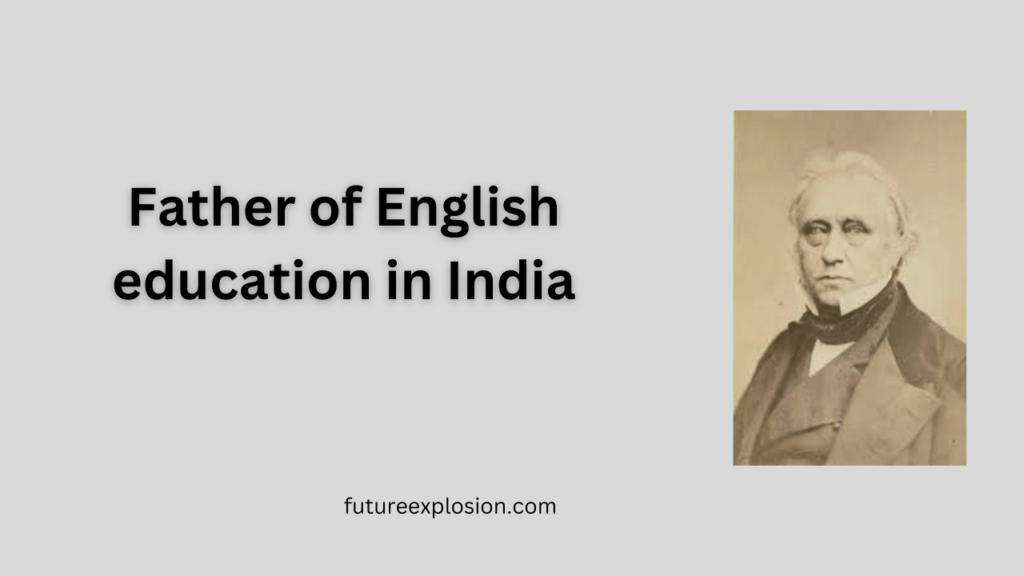Thomas Macaulay is called as the father of the English education in India.– Future Explosion

Father of English education in India
Thomas Babington Macaulay, who is generally regarded as the architect of the system of education in India during British rule, was a great essayist, historian, linguist, orator, politician, statesman, and thinker. Lord Willaim Bentinck introduced English as a medium of higher education in India on the advice of Thomas Babington Macaulay who was also his council member.
English education in India was largely introduced and promoted by the British during their colonial rule. The person often credited with the establishment of English education in India is Lord Thomas Babington Macaulay. He played a significant role in the implementation of the English Education Act of 1835, which aimed at promoting English as the medium of instruction in schools and colleges across India. This decision had a lasting impact on the education system in the country.
Who is the father of English education in India
The English Education Act 1835 was the Council of India’s statutory act, which gave effect to a decision by Lord William Bentinck, then Governor-General of the British East India Company, in 1835, to reallocate funds that the British Parliament needed to spend on education and literature in India.
Previously traditional Muslim and Hindu education and the publishing of literature in the then-traditional languages of learning in India (Sanskrit and Persian) had been restricted in support of traditional Muslim and Hindu education; subsequently, they were to support establishments teaching a Western curriculum with English as the language of instruction.
Thomas Babington Macaulay created his famous Memorandum on (Indian) Education in discussions leading up to the Act, which scratches on the inferiority (as he saw it of native (especially Hindu) culture and learning. Therefore through English-language higher education, there was a need to establish a class of people, Indian in blood and color, but English in taste, beliefs, morals, and intellect,’ who could, in turn, acquire the resources to communicate Western learning in the vernacular languages of India.
Who is considered the father of English education in India
The immediate cessation of printing by the East India Company of Arabic and Sanskrit books and that the Company should not continue to promote traditional education beyond the Sanskrit College at Benares and the Mahometan College at Delhi” was among Macaulay’s recommendations (which he considered adequate to maintain traditional learning).
Other Articles






